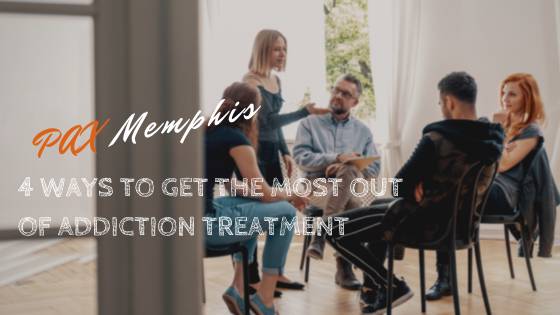You have admitted that you need addiction treatment, which is the first step towards recovery. Sadly, too often people get caught in the merry-go-round of addiction, treatment, relapse, and then going back to treatment. This cycle can be a vicious one, but you don’t have to get caught up in it.
Although addiction is a chronic, relapsing disease, it can be treated. Most people find that they must treat their disease each and every day in order to stay sober – even after treatment ends. However, it is just as important to do everything in your power to heal during treatment. While treatment provides a safe place for you to begin your recovery, there are several things you can do to get the most out of addiction treatment. Here are 4 things you can do to ensure you allow yourself to heal during rehab.
1. Take Your Therapists Suggestions
From the moment you start your journey at an addiction treatment center, you will begin building a relationship with your therapist. He or she may meet you in both individual and group therapy sessions. During these sessions, you will not only uncover the underlying causes and conditions of your addiction, but you will also receive suggestions. Unfortunately, not everyone takes these suggestions even though they will benefit their recovery.
Some suggestions will be applicable while you are in treatment, while others will apply after you complete your treatment program. Regardless, it is important to take these suggestions very seriously. After all, your therapist is a professional. He or she has dealt with hundreds or thousands of people who suffer from addiction. You came to treatment for help and taking your therapist’s suggestions shows that you are willing to accept the help they have to offer. In addition, it will help you stay sober.
2. Avoid Distractions
Like anything in life, there will be distractions that may divert your focus from your own recovery on to something else. Sometimes, the distraction is something serious – such as trouble at home, financial difficulties, relationship turmoil, or uncertainty about the future. However, other distractions may arise. Perhaps there is drama with your peers, disagreements with your housemates, or a potential love interest that you meet in treatment. Regardless of what the distraction is, it is crucial to focus solely on your own recovery.
When you focus on yourself, you are able to take a deep look inside. Similarly, you allow yourself to be fully present and engaged during your therapy sessions, recreational activities, and your personal healing process. When you are distracted, on the other hand, you deny yourself of the introspective work that is crucial to understanding and healing from your addiction. If a distraction is nagging at your brain, speak to your therapist about it. Talking about distractions lessens the power that they have over you, and your therapist may have some good insight into how you can place your focus back on yourself.
3. Practice Honesty
One characteristic that becomes embedded in people with severe addictions is dishonesty. After all, when you spend several years lying to loved ones, hiding substance abuse, and going to any lengths necessary to find your next fix, it’s easy to see how dishonesty can manifest within people who suffer from addiction. Unfortunately, old habits don’t always disappear just because the drugs and alcohol are removed from your lifestyle. However, honesty is a principle that is imperative to recovery.
You may be ashamed of some of the things you did while using substances, however, your peers in treatment and your therapist won’t judge you. In fact, many of your peers have likely done similar things. In addition, many therapists in the addiction treatment field are in recovery themselves and will relate to you. Even if your therapist isn’t in recovery, he or she cares about you and will do nothing but appreciate your honesty. If you are truly ready to heal from addiction, you must be willing to be honest. Nobody can help you if you aren’t being honest, transparent, and vulnerable.
4. Start Building Sober Support
Sober support is a key aspect of recovery. Most recovery programs, like 12-step fellowships, SMART recovery, and refuge recovery all encourage members to have sober support. When you build these kinds of unique relationships, you will have people around you who understand exactly what you are going through. They will relate to you and offer their compassion. Recovery isn’t something you have to do alone.
Furthermore, isolation is a sign of relapse. Instead of isolating, stay close to your sober support network. These individuals can hold you accountable throughout your recovery and provide a shoulder to lean on during difficult times. You don’t have to wait until after treatment to start building a sober support group – you can begin as soon as you start your addiction treatment program. Having sober support will not only benefit you, but it will help others with their recovery as well. Start building lasting relationships in treatment to better prepare yourself for staying sober in the real world.
Start Healing From Addiction Today
Are you ready to take the first step and accept help from an addiction treatment center near you? If so, reach out to an addiction specialist at PAX Memphis Recovery Center. Our compassionate staff and expert therapists will help you make the most out of addiction treatment.
Addiction doesn’t have to be the end of the road. Turn your life around by getting help today.
Medically Reviewed: September 25, 2019

All of the information on this page has been reviewed and verified by a certified addiction professional.










